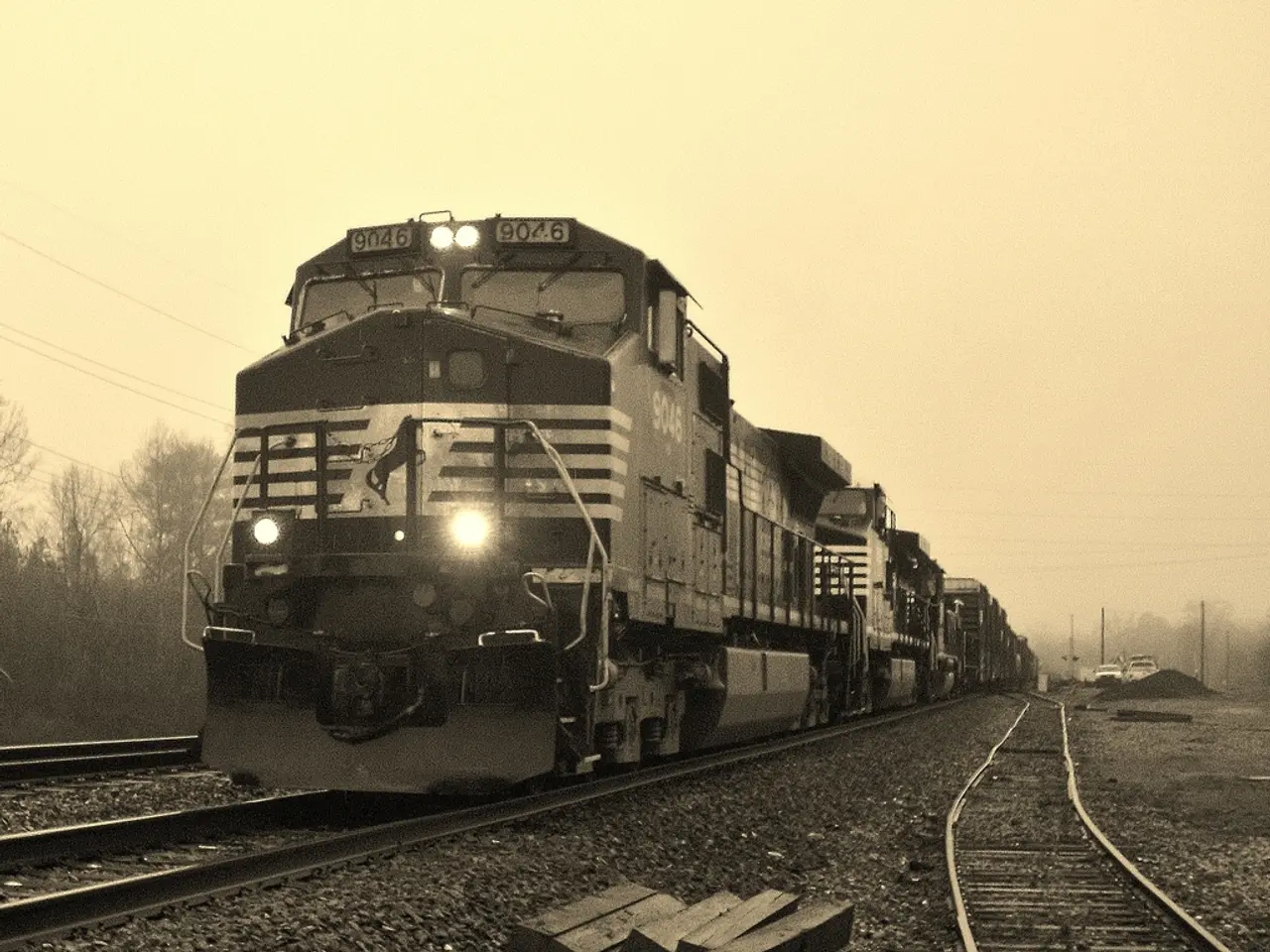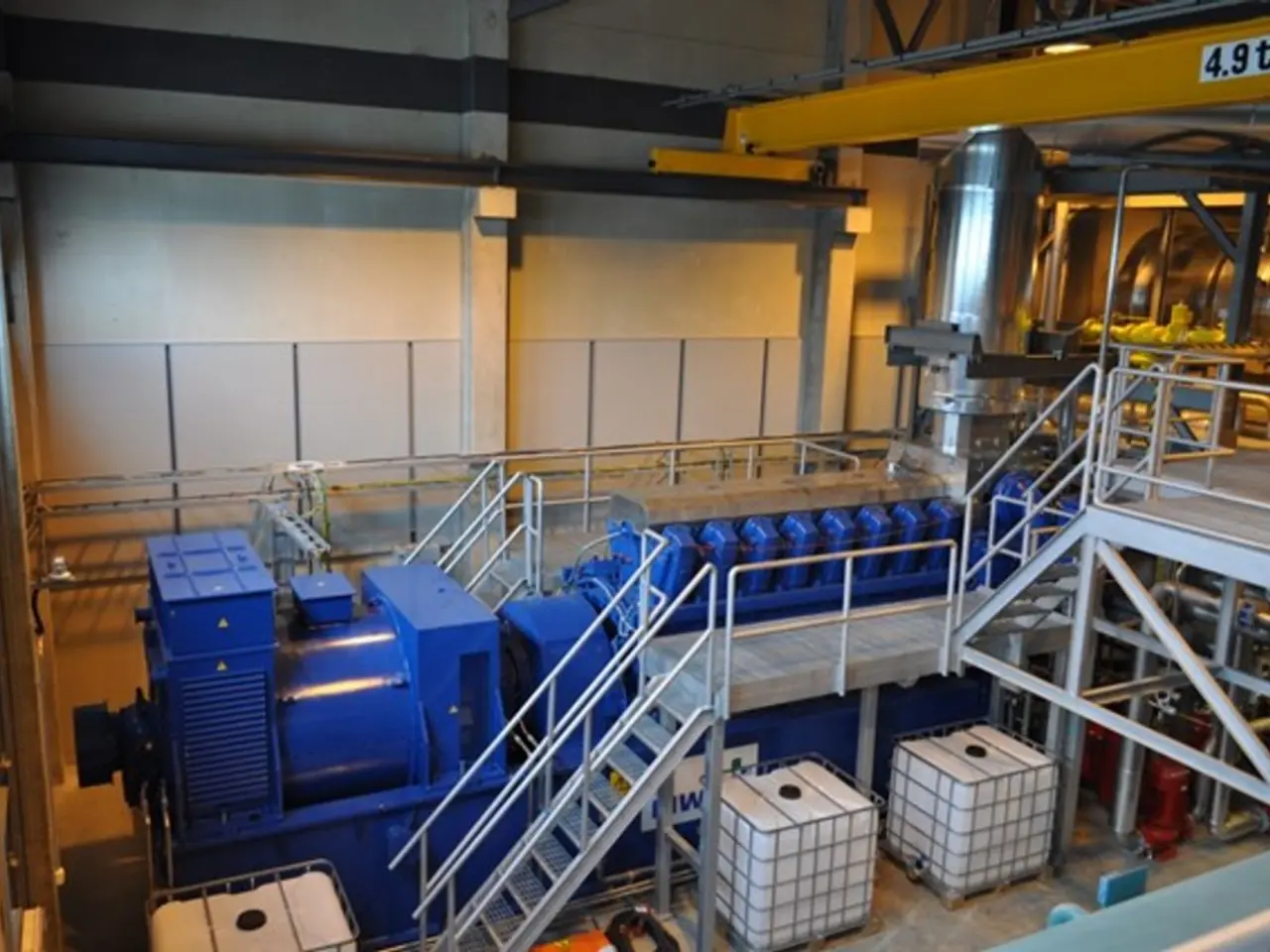Stable Alternative Traffic Flow Maintained Between Hamburg and Berlin via Rail Services
The Hamburg-Berlin railway line is currently undergoing a significant nine-month renovation, aiming to modernise and update the overloaded and dilapidated track network by 2036, as part of more than 40 corridor renovations planned by the railway company.
During this period, the journey from Wittenberge to Berlin Hauptbahnhof will take three and a half hours instead of the usual one and a half hours. Most regional train lines will end at Wustermark station, with ICE and IC trains rerouted via Stendal and Uelzen since Friday evening. This rerouting results in less frequent train services and a 45-minute extension to usual travel times.
Commuters in Brandenburg who rely on regional traffic between Berlin and Wittenberge are affected by the renovation. In their place, replacement buses are running at half-hour or hourly intervals. Interestingly, these buses are usually longer than the regional trains that would otherwise run on the route.
Construction work has begun on the closed line, with cables, track drives, and magnets for controlling signals being dismantled during the construction. Employees of the railway company and Ecovista will collect feedback and make adjustments in the coming days to ensure the replacement traffic runs smoothly, as claimed by the company.
It's worth noting that the renovation does not affect long-distance traffic. The renovation includes the renewal and modernization of tracks, signal boxes, overhead lines, and stations. The Hamburg-Berlin railway line renovation is part of a larger initiative to improve the capacity and regional connectivity of Berlin's railway infrastructure.
For detailed, authoritative information on Berlin’s railway corridor renovations and their potential impact on regional traffic by 2036, it is recommended to consult official German rail infrastructure plans from Deutsche Bahn or German transport ministries, or recent transport infrastructure strategy publications focused on Berlin.
Passengers in regional traffic are dependent on buses due to the renovation. Despite the challenges, the replacement traffic is running as planned, offering a temporary solution for commuters during this period of essential infrastructure improvement.
- The renovation of the Hamburg-Berlin railway line, set to be completed by 2036, is not just about railways; it also aims to modernize public-transit systems, transportation, including automotive routes, and even the local finance and industry sectors, given the importance of efficient transportation for those industries.
- As the industry and finance sectors heavily rely on reliable transportation and public-transit networks, the nine-month renovation of the Hamburg-Berlin railway line could potentially have an indirect impact on these sectors, especially during the period when the line is completely closed and replaced by bus services.
- With the Hamburg-Berlin railway line under renovation, the work might also extend to other transportation infrastructure, such as the local public-transit system and even the automotive industry, as the initiative plans to improve connectivity across the region, enhancing the city's overall industrial and financial standing.




